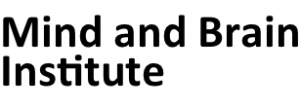FDA Approves Esketamine for Treatment-Resistant Depression, While US Suicide Rate Reaches Record High
The US Food and Drug Administration (FDA) on March 5th, 2019, announced on its website that it approved intranasal esketamine for the treatment of treatment-resistant depression. The nasal spray will be marketed as Spravato®.

I have provided some background information on esketamine and the process of its clinical development in my post of September 8th, 2018. I have also highlighted that esketamine might have an opioidergic mechanism of action, which could be the basis of its abuse potential. The approval of esketamine nasal spray was celebrated as a major breakthrough in the medical and non-medical press worldwide (e.g., in the Washington Post). According to the Post, the price of the drug in the US will be between $590 and $885 per treatment depending on the dosage. In the first month of treatment the total cost of the therapy will be $4,720 to $6,785, and maintenance treatment is estimated to cost between $2,360 and $3,540 per month.
Two days after the euphoric announcement, on March 7th, 2019, the New York Times reported that “Death From Drugs and Suicide Reach a Record in the U.S.”. The headline was based on numbers for 2017. “More than 150,000 Americans died from alcohol and drug-induced fatalities and suicide in 2017. Nearly a third — 47,173 — were suicides.“ These numbers were twice as high as in 1999, the year the collection of this type of mortality data started. The article cites Benjamin Miller, the chief policy officer for the Well Being Trust: „There are two crises unfolding in America right now, one is in health care, and one is in society.” According to Miller, feelings of despair, loneliness and a lack of belonging contribute to suicides among Americans. In addition, in 1999 less than 1,000 Americans died from an overdose of synthetic opioids. In 2017, that same number of deaths was recorded every two weeks, adding up to 28,000 deaths.
On November 30th, 2018, the New York Times in an opinion article by Moises Valasquez-Manoff asked the question “Can we stop suicides?” He stated “It’s been way too long since there was a new class of drugs to treat depression. Ketamine might be the solution.“
Esketamine is certainly a helpful extension of the therapeutic armamentarium against severe psychiatric disorders. But I’m certain that neither ketamine nor esketamine are “solutions” for the increasing numbers of suicides in the US, which are a reflection of changes in society that psychiatry has to deal with.
Esketamine will be most likely approved in the European Union within 2019. In Germany, however, it will not be available before late in 2020 or even in 2021, because it has to pass the hurdle of the German health technology assessment (AMNOG).


